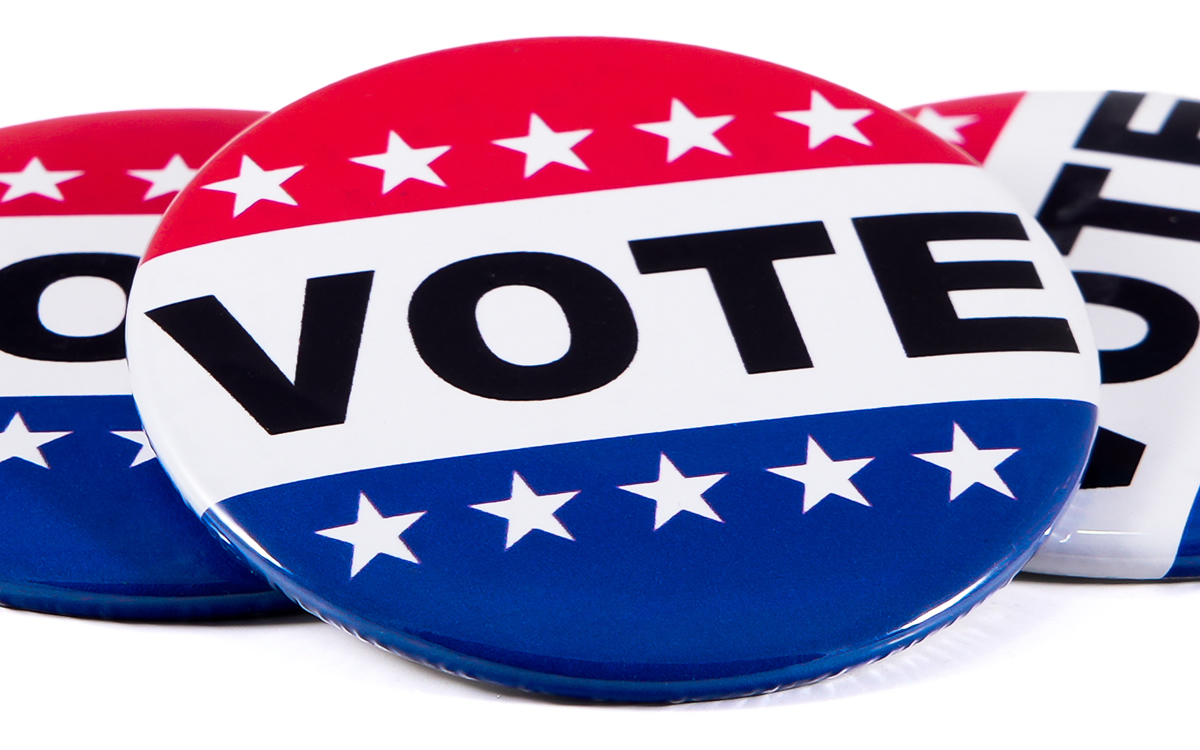Opinions
How big tech exploits the LGBTQ+ community to avoid regulation
Kids Online Safety Act a powerful tool to interrupt profit-driven warpath

By MADDIE GESCHU
As a nonbinary Asian American working in mental health advocacy, it’s clear to me that queer and trans Americans today are facing twin crises. State laws politicize our very humanity while our online infrastructure profits off our depression and others’ anger and fear. Both have led to a surge in violence against us that feels inescapable. But there’s one thing I’m sure of: Big Tech is not our savior or our ally.
Yes – social media can offer needed reprieve, important news, and community building. I certainly love a good meme. But for every positive Facebook interaction on trans content by queer people, there are four transphobic Facebook interactions. Of these transphobic interactions, more than one-third target trans people of color – primarily Black trans people. There’s no denying that Big Tech has and will continue to exploit our identities, privacy, and mental health for its billions in profits – and no rainbow capitalist façade can hide that. Yet, amid federal efforts to rein in harm (see the Kids Online Safety Act), it frustrates me that Big Tech is weaponizing trusted LGBTQ organizations as pawns in their last-ditch efforts to escape accountability. It is critical our communities not give Big Tech a pass, especially when they are feeding young people hours of extreme queer-specific suicidal content to keep them a captive audience for advertisers.
In my work to advocate for the Kids Online Safety Act, we have significantly revised the legislation and received input from many diverse and respected organizations to ensure no harm is done to those the bill seeks to protect—including the LGBTQ community. Importantly, because of these meaningful conversations from key allies, GLAAD, GLSEN, and PFLAG have dropped their opposition to the bill.
Our partner organizations know Big Tech is not innocent as it purports to be.
Earlier this year, GLAAD gave Instagram, Facebook, and YouTube failing grades, citing a lack of prohibition on deadnaming. Facebook and Instagram have failed to suspend large anti-LGBTQ hate accounts, which drove death threats to children’s hospitals after spreading misinformation about gender-affirming care. YouTube is consistently slow to take action against hate campaigns directed towards LGBTQ content creators – including refusing to suspend accounts that engage in targeted harassment.
Companies say they’re working on improving their platforms to make them safer, but their hyper-targeted algorithmic practices are proven to heighten a user’s risk for anxiety, depression, disordered eating, and suicidal behaviors. For LGBTQ+ youth, one survey found 24% were recommended dieting or pro-eating disorder content every time they went on a platform, compared to 18% of non-LGBTQ+ youth. Another survey reported 56% of LGBTQ+ youth had been cyberbullied in their lifetime compared to 32% of non-LGBTQ+ youth.
These companies aren’t incentivized to change – they’re incentivized to cover it up. Instagram alone makes more than $230 million annually from pro-eating disorder content. These are the types of predatory business practices the Kids Online Safety Act would finally hold Big Tech accountable to address.
One of Big Tech’s primary talking points suggests that the Kids Online Safety Act would empower states to censor queer, trans, and other marginalized voices. This argument evokes well-founded fear for our communities – and historically this fear holds true – but the talking point is completely false. The Kids Online Safety Act doesn’t filter or block anything. And where the bill would require Big Tech to ensure their own product designs and business practices don’t create or exacerbate specific harms to kids, those harms are narrowly defined to real and deadly issues — ones that disproportionately affect LGBTQ kids. Disgustingly, Big Tech claims allyship while funding the transphobic policymakers who censor our voices – to the tune of $1 million just in 2020. Big Tech can’t have it both ways, and we cannot allow the industry to control the narrative.
The Kids Online Safety Act is not a cure-all, but it is one powerful tool to interrupt Big Tech’s profit-driven warpath. Asking the industry politely to change its ways isn’t working; it’s up to us – especially those of us most impacted – to build legal accountability for their gross negligence and ensure the safety of our younger queer and trans people.
Maddie Geschu (they/them) is a government relations representative with the Eating Disorders Coalition for Research, Policy, & Action.
Commentary
Celebrating 15th anniversary of Harvey Milk Day
A powerful reminder that one person can make a difference

Harvey Milk’s birthday, May 22, is officially a Day of Special Significance in California. Other states also honor Milk.
Milk was the first openly gay man elected to public office in U.S. history. In 1977, he was elected to a seat on the Board of Supervisors in San Francisco. His term began in January 1978 and ended in November when disgruntled former Supervisor Dan White assassinated Milk and Mayor George Moscone at City Hall.
In his 1982 book “Mayor of Castro Street: The Life and Times of Harvey Milk,” Randy Shilts wrote a moving account of San Francisco’s 1978 memorial for Milk. A “massive crowd stretched the entire distance from City Hall to Castro Street, some 40,000 strong utterly silent,” Shilts wrote. The crowd “ostensibly memorialized both George Moscone and Harvey, but few speakers quarreled that the crowd had amassed chiefly to remember the gangly ward politician [Milk] who had once called himself the mayor of Castro Street.”
Shilts quoted Board of Supervisors President Dianne Feinstein, at the time acting mayor, telling the mourners that Milk “was a leader who represented your voices.” Another speaker said Milk “was to us what Dr. King was to his people. Harvey was a prophet [who] lived by a vision.” Equality was Milk’s vision.
Shilts presciently titled the last section in his book “The Legend Begins.” In 1979, after a jury gave assassin White a light seven-year sentence, LGBT rioters rocked San Francisco in what is called “The White Night Riots.” During the riots, Shilts wrote that “a lesbian university professor yelled into a feeble bullhorn: ‘Harvey Milk lives.’” Since 1978, Harvey Milk’s courageous leadership has been celebrated globally.
Over four years, 2006-2010, San Francisco reminded the country that Milk was a gay man worthy of great honors. The 2008 movie “Milk,” filmed partly in San Francisco, with Sean Penn as Milk, ignited greater public interest in the legendary gay activist. Gay screenwriter Dustin Lance Black and Penn won Academy Awards in 2009.
The film led Gov. Arnold Schwarzenegger to sign legislation making Milk’s birthday a Day of Special Significance. Also, President Barack Obama awarded Milk with a posthumous Presidential Medal of Freedom. On Milk’s 84th birthday, the U.S. Postal Service issued a commemorative Forever stamp in his honor.
California’s Harvey Milk Day recognizes Milk for his contributions to the state. It also encourages public schools to conduct “suitable commemorative exercises” to honor Milk.
“To me, [Milk] was a man who was a capitalist, and an entrepreneur who happened to be gay,” said Republican Sen. Abel Maldonado, the only Republican to vote for the bill to create Harvey Milk Day.
The newer scholarship about Milk provided additional insight into his activism. “An Archive of Hope: Harvey Milk’s Speeches and Writings” edited by James Edward Black, Charles Morris, and Frank Robinson, published in 2013 by the Univ. of California Press, is an excellent example.
The book’s title is drawn from Milk’s 1978 speech called “The Hope Speech.” He spoke about people [gays, seniors, Black Americans, disabled, Latinos, Asians] “who’ve lost hope.” He proceeds to talk about inspiring hope in others who are struggling when the “pressures at home are too great.” It is a passionate speech, based largely on Milk’s conversations with people in the Castro. In a review of the book for The Gay and Lesbian Review Worldwide, I wrote it is: “An important contribution to the corpus of work on Harvey Milk as a writer and orator.”
Milk believed that it was important for members of the LGBTQIA+ community to come out. If more people were aware of their LGBTQIA+ associates who were their friends, family, and loved ones, then discrimination would end. To Milk, coming out would lead to ensuring LGBTQIA+ civil rights.
In 2007, during Pride in San Francisco I worked at a nonprofit’s booth in Civic Center Plaza. A man stopped to talk. I mostly listened. He was a veterinarian from a small town in Arkansas. He was gay and closeted. He regularly visited San Francisco for Pride. Afterward, he regularly returned to his closeted life in Arkansas. I felt sorry for him. Though I was a stranger to him, he needed to come out to me. I was reminded of Milk’s wisdom about the freedom of coming out.
Harvey Milk Day is for all people who need hope. Milk’s life is a lesson that one person can make a difference. A strong, united community inspired by Milk and others has changed and continues to change the world.
Milk’s short political career led to long-term LGBTQIA+ political leadership from the Bay Area to Washington, D.C. to Miami to Seattle. To paraphrase a Woody Guthrie song: This LGBTQIA+ Land is Our Land. Happy Milk Day 2024!
James Patterson is a lifetime member of the American Foreign Service Association.
Opinions
Rosenstein: Vote McGuiness for Delaware’s 14th District
For responsible growth and continued improvements in Sussex County

I know Kathy McGuiness, and there is no one more qualified to replace Pete Schwartzkopf as 14th District Representative.
I have owned a home in Sussex County for more than 25 years, and have been coming to Rehoboth Beach for 40. I followed Kathy’s career, and know the time she has given to the people of the state and District. No one can match her ability to do the job. Kathy is a health care professional, and a mother, committed to continue to fight to protect every woman’s health and reproductive rights.
“As a registered pharmacist, I’ve been on the front lines when it comes to health care,” she said. “I’ve been with patients who cried at the counter when they couldn’t afford their medicines, administered COVID shots during the pandemic, struggled when my mother couldn’t schedule a doctor’s appointment for weeks, and joined my sister to advocate for her son, who is in a wheelchair, when he can’t get the services he needs. We have a health care crisis in Sussex County.”
Kathy is committed to attracting, and retaining, doctors, nurses, specialists, and pharmacists, to the fastest-growing county in the state. She has committed to seeing state and federal regulators never again identify the families, and retirees, in the 14th district, as being under-served in healthcare.
Kathy graduated from Cape Henlopen High School and her mom taught 6th grade at Shields Elementary. She knows first hand the struggles of our children, and teachers. She is committed to listening to, and working with, local and state officials, parents, and teachers, to ensure the resources needed to facilitate the best possible education for all our children.
Born and raised in the district, now bringing her family up here, Kathy understands the value of the unique, precious, natural resources in Eastern Sussex County. She will continue to work to protect our beaches and natural resources. She will fight for state funding for sensible, responsible, infrastructure and traffic projects, that truly meet the needs of the community. Kathy takes the fight to Dover understanding tourism with her experience as a six-term Rehoboth Beach Commissioner. She is a businesswoman, and founding president of Rehoboth Beach Main Street. She will fight to protect and promote local businesses, press DelDOT to improve traffic flow, and importantly, work with state and county officials to create more safe and affordable workforce housing.
No one has the broad experience Kathy has. She has been a member of the 14th District’s Democratic Committee; a trustee at Delaware State University; a member of the Delaware Film Commission; a member of CAMP Rehoboth Board of Directors and the YMCA Sussex Board; and Lewes-Rehoboth Meals on Wheels board. She volunteered with Delaware Food Bank, Just Soup Ministry, Shepherd’s House, Planned Parenthood, and the Seashore Striders.
Kathy was named State of Delaware, Tourism Person of the Year; Business and Professional Women’s Employer of the Year; and recently, 2022 Delaware Pharmacist of the Year. She is married to Steve, a river boat pilot, and is mom to three amazing children. Has one grandchild, and another on the way.
Let me address the only issue some may have with Kathy. She was accused of six very questionable criminal counts when serving as a successful State Auditor. Of the most serious, the jury found her not guilty on three, and the judge threw two others out. She was convicted of one simple misdemeanor, for hiring her daughter as an intern, which she only did after the Delaware Attorney General assigned to her office, said it was legal. As Pete Schwartzkopf said at her campaign announcement, this is nothing that so many others in the state have done. Kathy said, “I’ve paid my debt to the state through a fine and community service. Now I’m ready to get back to what I have done my entire adult life — help and serve the people of Eastern Sussex County.”
So, I am honored to add my name to those of Speaker of the Delaware House Pete Schwartzkopf, 20th District Representative Stell Selby, Dewey Beach Mayor Bill Stevens, Dewey Council member Paul Bauer, former Rehoboth Planning Commission Chair Richard Perry, former Ambassador Tom McDonald, former Rehoboth Beach Commissioner Steve Scheffer, former Dewey Mayor Pat Wright, and former Democratic County Chair and Judge, Mitch Crane, all endorsing Kathy McGuiness for 14th District Representative.
They know Kathy is the candidate for those who want to see responsible, sustainable growth, and continued improvements in Sussex County. She said, “When elected, I promise to listen to your questions and concerns. I will reach out, and remain available for conversations with everyone. I will serve with renewed dedication and humility. I promise to give it everything I’ve got.” So, vote Kathy McGuiness for District 14th Representative on Sept. 10. She will make us all proud.
Peter Rosenstein is a longtime LGBTQ rights and Democratic Party activist. He writes regularly for the Blade.
Opinions
Advocating for the Queer Community On and Off The Job
One organ donor can save up to eight lives

As a proud trans man, Kai Sprando recognizes the importance of visibility and education in fostering understanding and acceptance of the LGBTQIA+ community. His commitment to spreading awareness and advocating for queer experiences is something he champions on both a personal and professional level.
In 2019, Kai began working in the organ donation field as it provides a convergence of purpose and opportunity, which he embraced wholeheartedly to make a difference in people’s lives. Kai works as an Instructional Designer at Infinite Legacy, where he develops educational resources, curriculum and training plans primarily for clinical staff. At Infinite Legacy, he found not just a job, but a community of compassionate individuals who support him in every aspect of his trans journey.
In Kai’s eyes, organ donation is more than a medical procedure; it is a lifeline and second chance for individuals with end stage organ failure. He also sees it as a way for organ donors to continue their legacy of kindness beyond their time on Earth. He is deeply moved by the profound impact that one organ donor has to save up to eight lives. This knowledge fuels Kai’s passion for his work, driving him to encourage others to learn about the transformative power of organ donation.
For Kai, education is key. He believes that the more people know about and understand organ donation, the better equipped they are to make informed decisions and advocate for the cause.
“The opportunity to make a difference by saving lives as an organ donor is very powerful. When I pass, I want to know that if nothing else, I tried my best to help others. That’s what life is all about to me…finding ways to make the hard things in life a little less hard, one act of kindness at a time.” said Kai.
With his background in teaching and his viewpoint as a trans man, Kai has been invited to and spoken at several national organ donation and transplantation conferences providing insight and perspective on what it means to be trans and queer, allowing his peers the ability to be more effective and caring while interacting with LGBTQIA+ people and their families.
Kai is passionate about advocating for marginalized communities and through his openness, vulnerability and willingness to share his lived experiences, Kai contributes to positive change in healthcare, particularly around gender and sexuality representation.
As he continues to advocate for change and build a better infrastructure around LGBTQIA+ needs and representation, Kai remains hopeful for the future. He has seen the important shifts and positive changes in healthcare in recent years and is determined to keep pushing for progress, one conversation at a time.
Everyone can register to be an organ donor. To learn more, visit infinitelegacy.org.
-

 South America3 days ago
South America3 days agoPeruvian government classifies transgender people as mentally ill
-

 District of Columbia3 days ago
District of Columbia3 days agoMeet Jay Jones: Howard’s first trans student body president
-

 Africa5 days ago
Africa5 days agoUgandan president meets with US ambassador
-

 a&e features3 days ago
a&e features3 days agoWhat’s new at Rehoboth Beach for summer 2024











